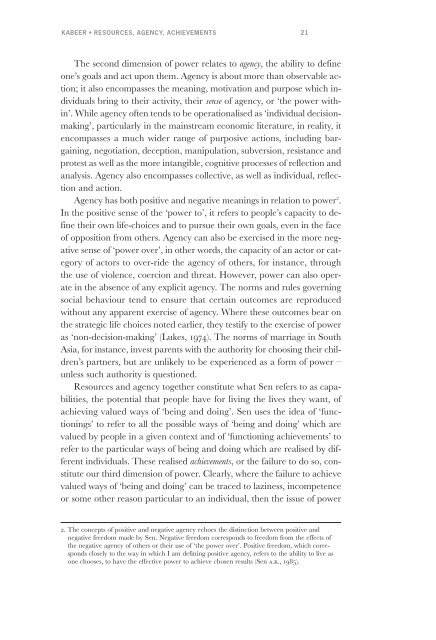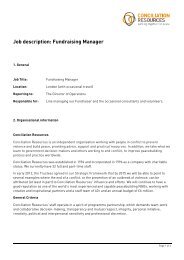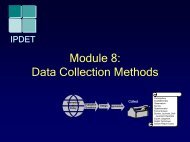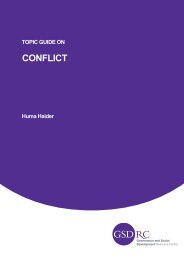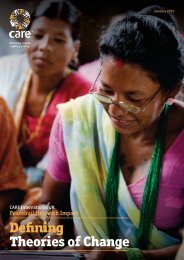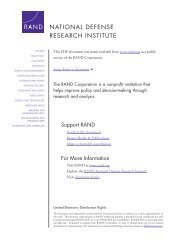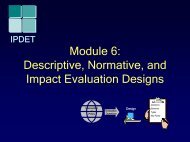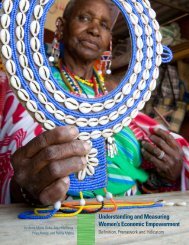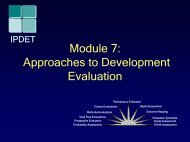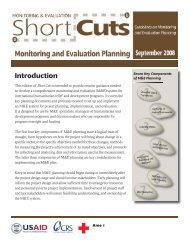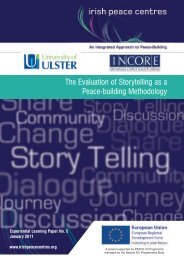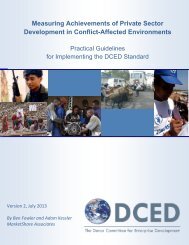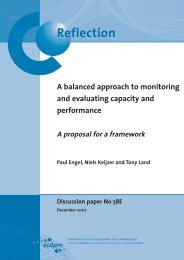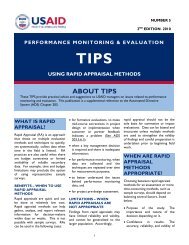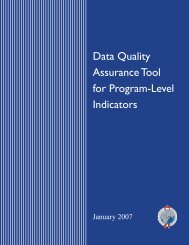Discussing Women's Empowerment - Sida
Discussing Women's Empowerment - Sida
Discussing Women's Empowerment - Sida
Create successful ePaper yourself
Turn your PDF publications into a flip-book with our unique Google optimized e-Paper software.
KABEER • RESOURCES, AGENCY, ACHIEVEMENTS 21<br />
The second dimension of power relates to agency, the ability to define<br />
one’s goals and act upon them. Agency is about more than observable action;<br />
it also encompasses the meaning, motivation and purpose which individuals<br />
bring to their activity, their sense of agency, or ‘the power within’.<br />
While agency often tends to be operationalised as ‘individual decisionmaking’,<br />
particularly in the mainstream economic literature, in reality, it<br />
encompasses a much wider range of purposive actions, including bargaining,<br />
negotiation, deception, manipulation, subversion, resistance and<br />
protest as well as the more intangible, cognitive processes of reflection and<br />
analysis. Agency also encompasses collective, as well as individual, reflection<br />
and action.<br />
Agency has both positive and negative meanings in relation to power 2 .<br />
In the positive sense of the ‘power to’, it refers to people’s capacity to define<br />
their own life-choices and to pursue their own goals, even in the face<br />
of opposition from others. Agency can also be exercised in the more negative<br />
sense of ‘power over’, in other words, the capacity of an actor or category<br />
of actors to over-ride the agency of others, for instance, through<br />
the use of violence, coercion and threat. However, power can also operate<br />
in the absence of any explicit agency. The norms and rules governing<br />
social behaviour tend to ensure that certain outcomes are reproduced<br />
without any apparent exercise of agency. Where these outcomes bear on<br />
the strategic life choices noted earlier, they testify to the exercise of power<br />
as ‘non-decision-making’ (Lukes, 1974). The norms of marriage in South<br />
Asia, for instance, invest parents with the authority for choosing their children’s<br />
partners, but are unlikely to be experienced as a form of power –<br />
unless such authority is questioned.<br />
Resources and agency together constitute what Sen refers to as capabilities,<br />
the potential that people have for living the lives they want, of<br />
achieving valued ways of ‘being and doing’. Sen uses the idea of ‘functionings’<br />
to refer to all the possible ways of ‘being and doing’ which are<br />
valued by people in a given context and of ‘functioning achievements’ to<br />
refer to the particular ways of being and doing which are realised by different<br />
individuals. These realised achievements, or the failure to do so, constitute<br />
our third dimension of power. Clearly, where the failure to achieve<br />
valued ways of ‘being and doing’ can be traced to laziness, incompetence<br />
or some other reason particular to an individual, then the issue of power<br />
2. The concepts of positive and negative agency echoes the distinction between positive and<br />
negative freedom made by Sen. Negative freedom corresponds to freedom from the effects of<br />
the negative agency of others or their use of ‘the power over’. Positive freedom, which corresponds<br />
closely to the way in which I am defining positive agency, refers to the ability to live as<br />
one chooses, to have the effective power to achieve chosen results (Sen A.K., 1985).


